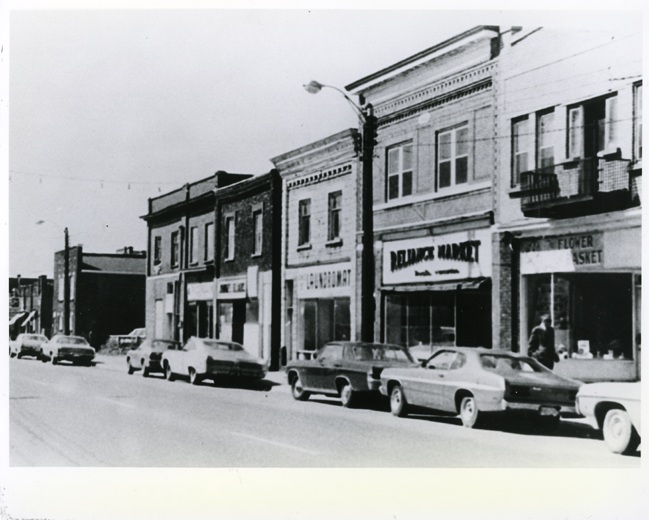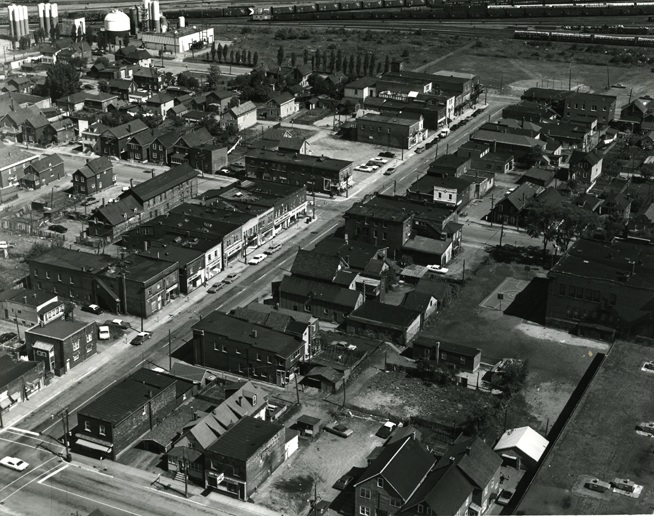
From the Sault Ste. Marie Public Library archives:
*************************
Remember This?...Bootlegging in the Sault (1998.20-P44/1998.20-P42)
The Ontario Temperance Act was a wartime measure enacted by Premier William Hearst in 1916 to prohibit the “sale of liquor, including the keeping, giving or having of liquor except in a private dwelling.”
While it was a wartime measure, people wanted this legislation to continue after the conclusion of the war, so it remained in effect until 1927.
Referendums were held in 1919, 1921 and again in 1924 and Ontario residents continued to support the legislation.
The creation of the Liquor Control Board of Ontario (LCBO) in 1927 replaced the Ontario Temperance Act.
The rum-running trade was most profitable on Lake Ontario, but it extended to other places along the international border including Sault Ste. Marie.
The geographical position of the two Saults located on opposite sides of the St. Mary's River and the many bays and inlets along Lake Superior aided in bootlegging because it made it possible for anyone with a boat that could float to make easy money.
With the creation of the LCBO in1927 ending the need for the previous law, tourism increased substantially between Sault Ste. Marie, Ontario and Sault Ste. Marie, Michigan creating the need for a new, larger ferry on St. Mary’s River as large numbers of Michigan residents came over to get alcohol.
Capacity on the new ferry increased from four vehicles to 25 vehicles.
Since restrictions were placed on the sale of alcohol – for example, bars in hotels had to close between 6 p.m. and 8:30 p.m. and alcohol could not be sold on Sundays, bootlegging continued to do a brisk business during the 1940’s and 1950’s in the city.
According to Saultite Aldo Diotallevi’s Oral History (available for viewing on the public library catalogue), his father moved to the Sault from Sudbury and opened a taxi business, a cover for his bootlegging business.
According to Diotallevi, bootlegging was a common way to supplement income in those days.
When he asked his father if it was illegal, his father replied, “the government does it, why shouldn’t I?”
He saw himself as just another businessman.
At one point, Diotallevi’s father had run-ins with the Italian Mafia, La Mano Nera or Black Hand from Hamilton, Ontario.
They threatened his life and the lives of his entire family if he didn’t stop selling alcohol.
The senior Diotallevi procured the help of local resident, Sante Carbone who had a “talk” with the gentlemen threatening Diotallevi’s family and the threats stopped.
Diotallevi tells a story during his Oral History interview about an incident when the Mounties were watching his father’s house, in the James Street/Hudson Street area, because they knew he had alcohol there.
They came in and searched their home but found nothing.
Senior Diotallevi had the forethought of having a carpenter friend build false floors in his house. At the time of the search, he was hiding 110 gallons of alcohol under the floors.
It was at this point that Aldo’s father decided to get out of the business, but he still had to get rid of the 110 gallons of alcohol that he was hiding in his house, with the Mounties watching his every move.
Enlisting the help of a local grocer, he had the grocer come to his home with a bag of groceries and leave with a gallon of alcohol.
He was eventually able to remove all 110 gallons of alcohol out of his home, right under the noses of the Mounties!
*************************

Each week, the Sault Ste. Marie Public Library and its Archives provides SooToday readers with a glimpse of the city’s past.
Find out more of what the Public Library has to offer at www.ssmpl.ca and look for more Remember This? columns here.